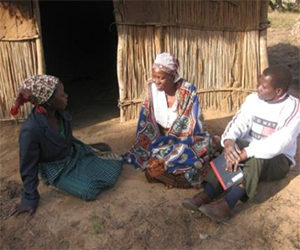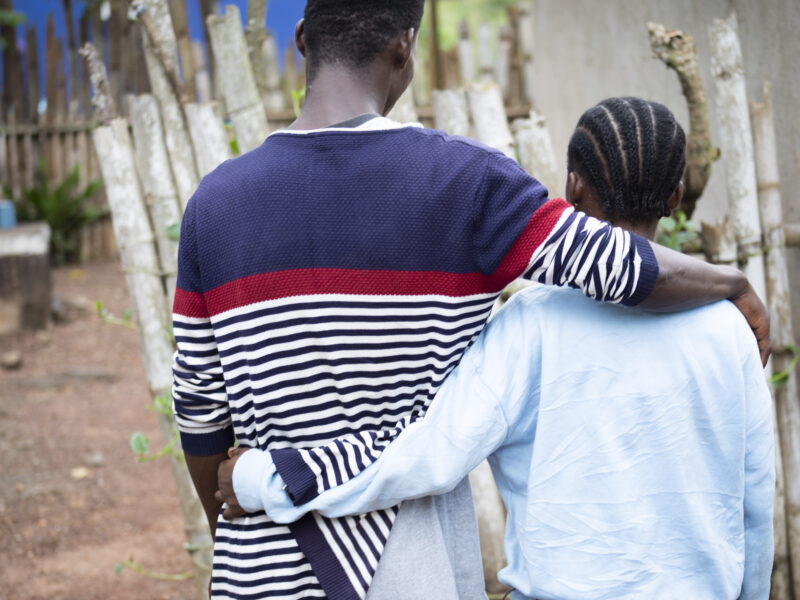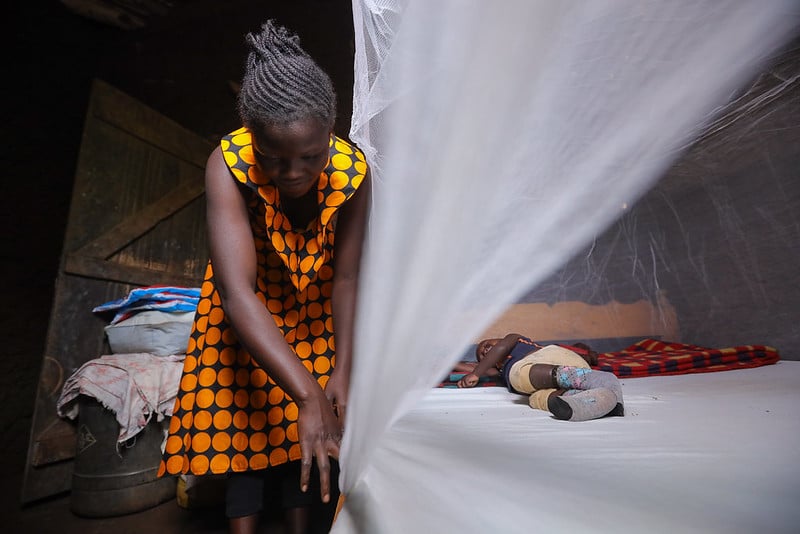“When Salva! came to my home, I was just waiting to die… I was so sick. They told me to go to the hospital but I didn’t have money,” expresses 29 year-old Dulce, a mother of three children between the ages of 1 to 12. “[Salva!] collected money for transportation. My husband came with me and was also encouraged to get tested for HIV. We both tested positive, and now, after a few months in treatment, I feel good.”
Dulce is one of many Mozambicans who has benefited from Salva a Vida (“Save Life”), known as Salva! by its loyal members. Salva! was created by individuals in the village of Chegua in Mozambique’s Chibuto District who were inspired to continue activities after the final session of Tchova Tchova Histórias de Vida Diálogos Comunitários (“TTHV Community Dialogues”) on HIV prevention and gender equity in September 2011.
TTHV was a component of a multi-pronged social and behavior change communication (SBCC) project in Mozambique, known as Tchova Tchova, Juntos Vamos Mudar (“Moving Forward Together We Will Change”). In addition to HIV prevention, the project also built local leadership and capacity through its facilitator training program, leadership that is now seen in Salva!
Salva! helps village members face HIV, mobilizes them to get tested, cares for orphans and vulnerable children (OVC) and checks in on people living with HIV/AIDS. Salva!’s members visit the homes of HIV/AIDS patients and OVC on a weekly basis, often sharing their own experiences to help others cope.
Beatriz Uate, President of Salva!, explains that, “For cases like Dulce, who was so sick she couldn’t walk anymore, Salva! collected money. Transportation is very expensive. Renting a car could cost 500 meticais (USD $20) especially if the driver isn’t amenable to negotiate.”
Many HIV/AIDS patients appreciate that Salva! has also begun to alleviate the stigma around HIV in their communities. Families are learning that HIV positive individuals should not be blamed or ostracized for their status, but rather supported for their strength in seeking treatment and care. As Salva! gives these patients the courage to accept the illness and to face the stigma that surrounds them, many are embracing life once again. Dulce herself emphatically believes that groups such as Salva! are saving lives, her own included, by breaking down previous standing barriers.
Adapted from an earlier model developed by the Johns Hopkins Bloomberg School of Public Health Center for Communication Programs (JHU∙CCP) in Africa known as African Transformation and a program serving the Middle East, Arab Women Speak Out, TTHV applied a transformational approach to facilitate social and behavioral change through a process of community dialogue. Funded by PEPFAR, Tchova Tchova, Juntos Vamos Mudar was led by CCP in partnership with with Fundacao de Desemvolvimento da Comunidade (FDC) with the goal of reducing HIV transmission and stigma in the country while increasing use of HIV services.
Learn more about JHU∙CCP’s ongoing work in Mozambique through the PACTO Project.




